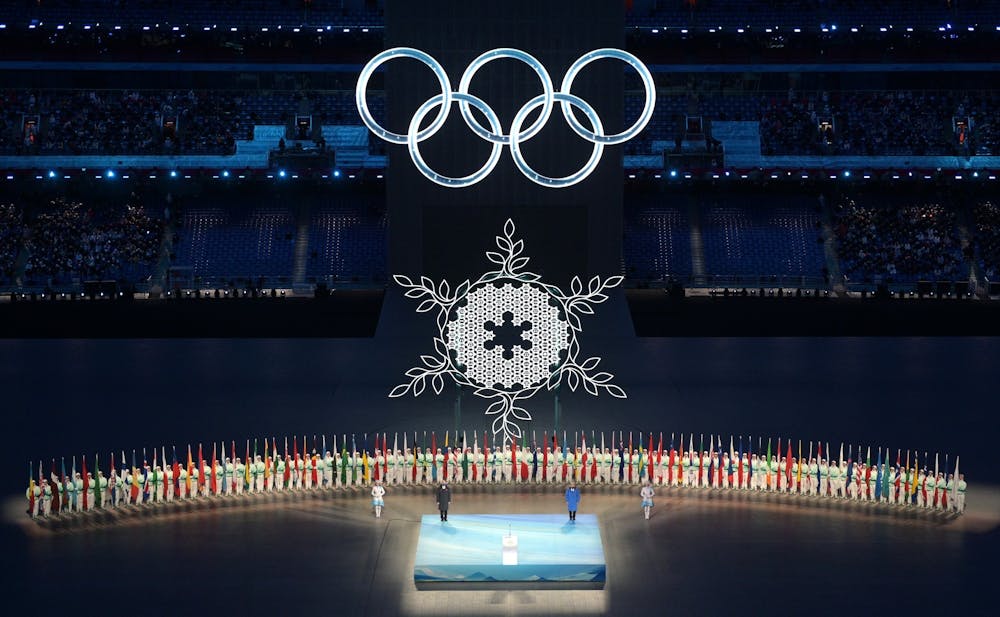Last December, the Biden administration announced a diplomatic boycott of the Beijing Olympics. Several countries followed suit, refusing to send their top officials to Beijing as a form of protest against China’s well-documented human rights violations against its Uyghur ethnic minority. These diplomatic boycotts, however, have widely been regarded as mere symbolic gestures. Some critics, such as Susan Brownell, a former U.S. Olympic trialist, have gone so far as to call the boycott a “waste of time,” claiming that it “will most likely have no impact on China’s domestic policies.”
Critics like Brownell are not wrong; a diplomatic boycott initiated by a few countries is too mild to produce any substantial effect. Instead, the United States and other countries should have orchestrated a complete boycott of the Beijing Winter Olympics if they truly wished to protest China’s mistreatment of the Uyghur Muslims.
The U.S. State Department has classified China’s state-sponsored attempts to ethnically cleanse the Uyghur Muslim minority through “education” camps as “genocide” and “crimes against humanity.” Although hundreds of human rights activist groups around the globe have called for a boycott of the Beijing Olympics in light of China’s egregious treatment of the Uyghurs, much of the international community has turned a blind eye to China’s actions, as evidenced by their unwillingness to boycott the Olympics. Every dollar and second spent on the Beijing Olympics increases the soft power and legitimacy of the Chinese government.
And the list of reasons for a boycott against the Beijing Olympics extends beyond the plight of the Uyghur Muslims — censorship of its own citizens, theft of intellectual property, state-sponsored cyberattacks against America, and suppression of protests in Hong Kong — all of which should have impelled countries to boycott the Olympics. While there have been concerns that China could impose severe economic sanctions on boycotting countries, this would likely not have been a worry if strength in numbers was acquired for the boycott: China cannot sanction the world without damaging its own economy.
Many share the concern that sport-related boycotts should be avoided because of the non-political nature of sports. It is true that the beauty of sports lies in its ability to bring together people of all ethnicities, religions, nationalities, and backgrounds in a non-political manner. However, boycotting, and even banning, countries from the Olympic games in the name of human rights violations is nothing new and not inherently political because human rights should be placed above politics. For example, South Africa was banned from participating in the 1964 Tokyo Olympics because of apartheid. This ban continued until 1992. A couple of decades later, the United States boycotted the 1980 Moscow Olympics to protest the Soviet invasion of Afghanistan.
Surely the detainment and mistreatment of over 1.5 million Uyghur Muslims that has been classified as genocide by the U.S. government should justify a boycott of the Beijing Olympics.
There is also an argument to be made that Olympic athletes themselves would have suffered the most from a boycott as they would have been deprived of the opportunity to compete in the Games. This concern could easily have been alleviated by relocating the Games to a different location — one that has already hosted the Winter Olympics in the past, like PyeongChang, Sochi, or Vancouver. Of course, the International Olympic Committee would likely have refused to relocate the Olympic games and has already supported China’s hosting of the games. However, if enough countries had been willing to boycott the Beijing Olympics and compete in a relocated competition, then it is likely that the IOC would have changed its stance. Again, strength in numbers is the solution.
As Princeton students, we are taught to act “in the service of the nation and in the service of humanity.” Complacency toward the evils of China’s regime is a disservice to humanity. The least we can do is educate ourselves and inform others of China’s crimes against humanity. This is a non-partisan and non-political issue. It is a matter of human rights.

Prince Takano is a sophomore majoring in Politics. He can be reached via email at takano@princeton.edu.









